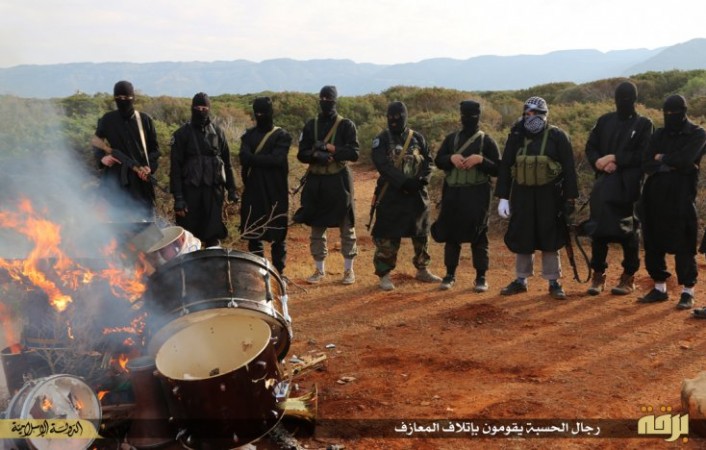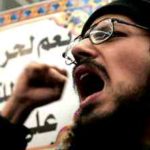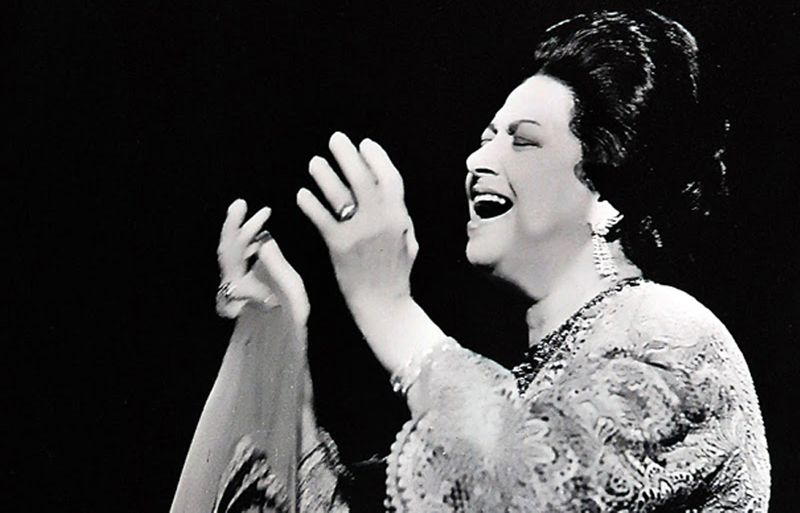
In the arena of the sacred, the orchestra of fundamentalist political Islam plays even now an ancient melody in auditoria designed to combat tedium, as if they were created to perform a single melody whose title changes according to its performers: ‘the symphony of heresy’, or ‘the corrupting hymn’. Some of these ‘heretics’, who do not see any heresy at all in their so-called ‘heresy’, prefer to call it the prelude to ‘Songs of Terrorism’, or ‘Terrorism’s Symphony’ if you want an artistic-sounding name.
BY THE SAME CATEGORY, as a technical designation, groups of extremist political Islam are termed ‘fundamentalists’, although the word ‘fundamentalist’ by itself is not a term accurate enough to be synonymous with these extremist political Islam movements labelled ‘fundamentalist’. To avoid delving into the world of terminology and definitions, we will keep this designation ‘fundamentalists’ here as a synonym for ‘extremist political Islam groups’.
Even those who dispute the license for both fundamentalists and non-fundamentalists to issue fatwas, nevertheless issue fatwas prohibiting the arts in general, and the acoustic arts in particular, in order to give the illusion of achieving a ‘consensus’, so that this in turn becomes a comprehensive settled issue, so to speak. In fact, any ‘consensus’ on this prohibition is more readily ratified by fundamentalists than non-fundamentalists.
We will not enter here into the field of jurisprudential/legal research – albeit that such research no less important than objective scientific research if one wishes to understand, and confront, the tendency or culture of extremism among Muslims. We will therefore not address the issue of the prohibition of the arts from a jurisprudential perspective; what we are discussing here is the prohibition of the arts that progresses with a logic and a perspective that differs to a greater or lesser degree from the traditional logic that critics adopt with respect to these fundamentalists.
Art negatively affects the ability of fundamentalists to control people’s minds
This logic engages with the fundamentalists’ prohibition of the arts as a control-mechanism over the people. And the approach I am taking here lies in a fundamental and foundational issue – perhaps the only one. If it is true that the prohibition of the arts contributes greatly to enabling the fundamentalists to control their followers, have these fundamentalists really reached such a depth in understanding human nature that they are consciously practising the prohibition for the sake of this control? Was this awareness present, in one way or another, among those who first outlawed it? Or was it shaped by contemporary fundamentalists as a result of the experience of political Islam in recent decades?
Here we should make a comparison or contrast between the personality of fundamentalism and the personality of art, or in other words, between the project of fundamentalism and the purpose of art as its counter-project, or opposing movement. By ‘project’ or ‘purpose’ here I mean the mental or psychological/spiritual formula, by which a person is formed depending on the levels of influence of art, or fundamentalism, upon him.
We can define the ‘art project’, or its mission, as on the one hand one of making mankind more responsive to the calls of beauty, and on the other hand of training him not only to savour that beauty, but also to be more human in doing so, and thus rendered closer to the divine. What is surprising, and encouraging of further research, is the dialectic that exists between man’s response to the call of beauty and its images and the direct unfolding of more of such calls and images, whereby the more he responds to it, the more beauty is revealed to him, so that he feels at some point that he wants to ‘embrace the world’ as several have expressed these moments of ecstasy generated by the images of beauty that they interact with.
This ‘embracing of the world’ represents the desire of the person interacting with beauty, not only to have more of it but also to dwell within this beauty and unite with it and travel instantaneously towards the realms of absolute beauty, and return therefrom with heightened sensitivities and more merciful morals. This interaction with beauty is a journey to God, and thus a mutual interaction taking place between man and beauty. To give an example, anyone listening in to a concert by Umm Kulthum,[1] or other masters of the musical arts in particular, notices that the audience, at a moment of euphoria, shouts ‘Allah’. This ‘Allah’ has two meanings, both of them sound in themselves: firstly, it is an exclamation indicating the acting presence behind the beauty of Kulthum’s music, so to speak. Secondly, their cry of ‘Allah’ expresses that the beauty they have just tasted is one that is only surpassed by God Himself. And honouring the relativity of this taste of beauty, one may well leave room for further interpretations of this phenomenon.
With this search for beauty mankind begins to ascend towards divinity, emulating some of His works, such as the act of creation
Beauty here is not something limited to sensual beauty, something perceived by the senses, but includes actual or practised beauty, so to speak, that is, the beauty of human actions in general, and in particular those that are not subject to relativistic standards. It is this type of beauty that we are focusing on in our approach. And if we wanted to define beautiful actions, we might say that they are actions that originate from mercy. Love is beauty, and giving is beautiful, in the same way as killing a person is heinous, even if the person killed ‘deserved’ to die.
We should dispense with here all the philosophical contaminations and Nietzschean syndromes that went beyond glorifying power and made it into a kind of morality, since there has to be some minimum level of humanity when one formulates theories in order for any such theory to be capable of benefiting people. There is no difference between fundamentalists who kill children, and believers in a theory that makes Hitler and Mussolini saints.
Returning to our topic, beauty forms an axis around which art turns, an orbit in which it swims. Art negatively affects the ability of fundamentalists to control people’s minds in several ways, the most prominent of which are three; liberating, bringing together and rendering divine. Art contributes to liberating mankind from the narrow perspective with which he looks at the world when, like some driving force towards creativity, it transports the man into a world of contemplation and imagination. On the other hand, art forces man to come out of himself, and indeed from the entire world about him, without cutting him off from where he stands, at that very moment of ecstasy at beauty, at that moment he feels close to floating, floating above this world.
Man is thus freed from his narrow social confines, and his home is transformed into the entire universe. When he returns to his new self, he feels a wild desire for more beauty, so he hastens to embrace the other who is different from him, who in turn hastens towards him, so that the two come together. With this search for beauty, or more precisely, this search for a new and different beauty – as if each is saying to the other: “take my beauty and bring me yours” – mankind begins to ascend towards divinity, adopting the morals of God, emulating Him so to speak and sharing some of His works, such as the act of creation, for the innovating person is a creative person. It was at such a moment that the poet Muhammad Iqbal addressed God with the words:
“O Lord, You created the jungle, and I created the garden.”
(To avoid any accusation of blasphemy, it must be emphasized that the partnership of God and man in creation is never synonymous with equality).
This image, or formula, upon which the man of art stands, is the complete opposite of what the fundamentalists hold that man is intended for. The person of beauty will see the crimes committed by the fundamentalists as heinous in two ways. The first in terms of crimes, and the second in terms of being committed in God’s name, the divine being who is Absolute Beauty. This Absolute Beauty can therefore never be a tool to implement fatwas urging killing, nor can it be a fuel for the hell of fighting. The fundamentalist is a person who closes in on himself and often cannot recognize the Other who differs from him, not only his right to exist intellectually, but also physically.
Fundamentalists have been unable to escape the presence of art rooted deep in the human soul
This closing in one oneself is due to their doctrinal claim of possessing absolute truth that they subconsciously promote, a claim which makes him see the differing Other only as an embodiment of the sin that he must be rid of, along with he who commits it, by means of a bullet or an explosive belt, and thus the fundamentalist personality will only meet with the Other to kill him.
Among the fundamentalists the image of God plays an important role in formulating their criminal ideas, ideas which they do not hesitate to implement whenever they get the opportunity. God – according to the fundamentalists – is not a ‘God of the worlds’; rather he is their God alone. As for those who disagree with them, there is no God for them, and being thus without a God the Other turns into an enemy that must be eliminated in the first place morally, as a prelude to his elimination physically, in a manner that is justified and acceptable not only to the one tasked with killing him but also to the rest of the fundamentalist adherents.
The ‘art project’, then, deprives man of the ability to be a tool in the ‘fundamentalism project’, since it enables a person to see the ugliness of intellectual or material fanaticism and extremism. For it is here, in the art project, that the most important form of beauty emerges: intellectual beauty, the beauty of the ideas that we carry. It is the ideas that we believe in, or receive, that determine our behaviour towards ourselves and towards others. A person of art also realizes that the voice of Umm Kulthum, for example, is more indicative of God and defines Him far better than the fundamentalist shaykhs who justify the killing of those who differ from them by suggesting that God would be the more pleased with the killer the more ‘infidels’ he slays.

Suggested Reading
What actually confirms that art is a necessity – even for those who forbid it – is the tendency of many fundamentalists to imitate this forbidden art by substituting, for example, the words of a ‘debauched’ song with words that express their ideology yet at the same time keeping the same ‘debauched’ melody. They have clearly been unable to completely escape the presence of art rooted deep in the human soul.
By way of conclusion it is perhaps best to return to where we started. We now face two possibilities: either the fundamentalists are consciously practising this prohibition of the arts – which means that they are smarter and more dangerous than we thought – or that hands that are not at all that white have exploited the works of fiqh and the hadith, which they and their followers have sanctified, with or without any guile, and which have turned the fundamentalists into a tool for implementing programmes that cannot be carried out in any good faith.
[1] Umm Kulthum (1898 – 1975) was an Egyptian singer and songwriter regarded as one of the greatest singers in the history of Arab music with significant influence on a number of musicians, both in the Arab World and beyond. She was given the honorific title Kawkab al-Sharq (‘Star of the East’) and was known also for her classical Arabic singing, using various musical modal scales (maqamat) to bring her audiences into a euphoric and ecstatic state.
Main image: ISIS in Libya burn musical instruments as ‘un-Islamic’ in February 2015.

